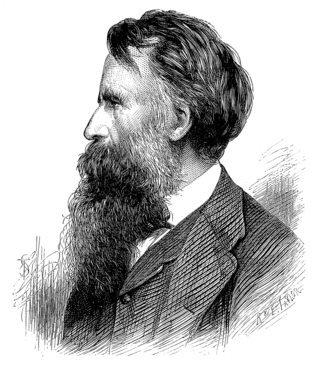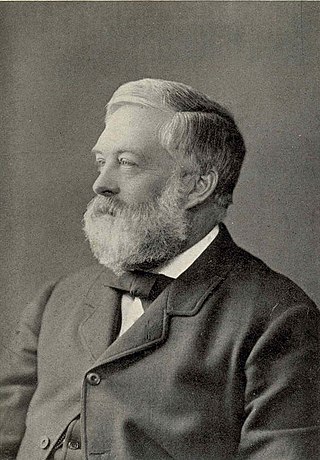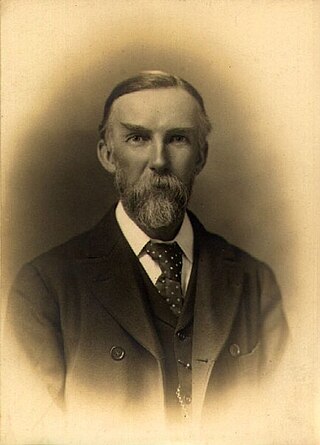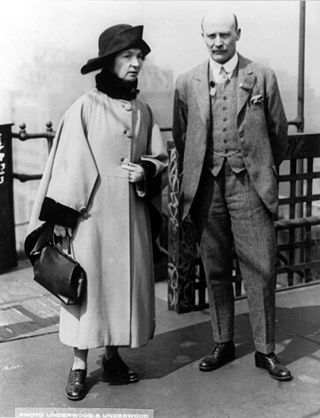Related Research Articles

Robert William Thomson PRSSA FRSE was a Scottish inventor known for inventing the refillable fountain pen and the pneumatic tyre.

Sir Charles Wyville Thomson was a Scottish natural historian and marine zoologist. He served as the chief scientist on the Challenger expedition; his work there revolutionized oceanography and led to his being knighted.

Hugh Pattison Macmillan, Baron Macmillan, was a Scottish advocate, judge, parliamentarian and civil servant.

Brigadier-General Sir Alexander Gibb was a Scottish civil engineer. After serving as Civil Engineer-in-Chief to the Admiralty and Director-General of Civil Engineering at the Ministry of Transport, he established the engineering consultancy firm Sir Alexander Gibb & Partners.
Thomas Stanley Westoll was a British geologist, and the long-time head of the Department of Geology at Newcastle University.

Sir Alexander Blackie William Kennedy FRS, FRGS, better known simply as Alexander Kennedy, was a leading British civil and electrical engineer and academic. A member of many institutions and the recipient of three honorary doctorates, Kennedy was also an avid mountaineer and a keen amateur photographer being one of the first to document the archaeological site of Petra in Jordan following the collapse of the Ottoman Empire.

James Matthews Duncan was a Scottish physician, known as a practitioner of and author on obstetrics.
Prof Ernest George Coker FRS FRSE MIME MICE Wh.Ex. (1869–1946) was a British mathematician and engineer. He won the Howard N. Potts Medal for Physics in 1922, and the Rumford Medal for work on polarised light in 1936. He was an expert on stress analysis and Photoelasticity. He contributed to Encyclopædia Britannica and other works under the initials E.G.C.
Brigadier Martin Melvin Cruickshank CIE FRSE FRCSE FACS FICS (1888-1964) was a Scottish surgeon, specialising in ophthalmic surgery. During the Second World War he was Chief Medical Officer for Delhi Province. He was created Commander of the Indian Empire in 1942.
Dr Brysson Cunningham FRSE DSc MICE (1868-1950) was a Scottish civil engineer and author specialising in harbour and dock design and operation. In the early 20th century he was generally viewed as the authority in this field.
Lewis Merson Davies FRSE RGS was a soldier, geologist, palaeontologist and author. He is noted for his controversial re-awakening of anti-evolutionary debate in Britain, following the Scopes Trial of 1925 in USA. He was described as "the most knowledgeable geologist and palaeontologist in the world of creationism". Davies was an advocate of Gap theory, and one of the few geologists to attempt to reconcile issues such as the geological effects of The Flood with contemporary geological understanding.

Charles Vickery Drysdale FRSE CB OBE (1874–1961) was an English electrical engineer, eugenicist, and social reformer. He is remembered for opening the second birth control clinic in Britain in 1921 and co-founding the Family Planning Association in 1930.
Peter McLaren Donald Duff FRSE FGS (1927–1998) was a Scottish geologist and academic author.
Sir Harry Work Melville, was a British chemist, academic, and academic administrator, who specialised in polymer research. He spent his early career in academia as a lecturer and researcher, before moving into administration as a civil servant and university college head.

James Ernest Richey was an Irish-born geologist.
Stenhard Ernest Andrew Landale (1905–1977) was a British businessman, with a background in electrical engineering and agriculture. He served as Director of William Younger & Co, brewers from 1950 to 1971. He established the company Landale Farms Limited in Scotland. In business he is often referred to as S. E. A. Landale.
Brigadier-General Magnus Mowat (1875–1953) was a Scottish railway engineer. From 1920 to 1938 he was Secretary of the Institute of Mechanical Engineers.
Alan Ernest Owen FRSE FRSC FIP was an English physicist specialising in glass technology.
Harold Stanley Ruse, MA, DSc, FRSE was an English mathematician, noteworthy for the development of the concept of locally harmonic spaces. He was Professor of Pure Mathematics at the University of Leeds.
Commander Ernest Claude Shankland RNR FRSE was a 19th-century Scottish naval officer and harbour expert.
References
- ↑ Biographical Index of Former Fellows of the Royal Society of Edinburgh 1783–2002 (PDF). The Royal Society of Edinburgh. July 2006. ISBN 0-902-198-84-X. Archived from the original (PDF) on 4 March 2016. Retrieved 30 August 2017.